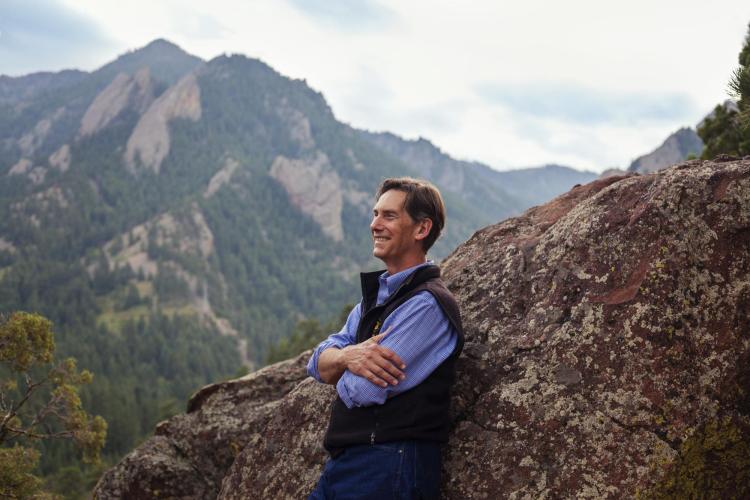In praise of diverse intellectual traditions
As our history shows, the university has long championed free expression, academic freedom and vigorous but civil discourse
There’s been much talk about “intellectual diversity” in higher education lately; the conversation is not new, and frankly sometimes it gets the story confused. To hear some tell it, university faculty across the nation are neither intellectually diverse nor intellectually tolerant. But in fact, the faculty are well acquainted with intolerance, and thus value highly a culture of tolerance. Their own personal and political views here—and nationwide—have been scrutinized for a century.

James W.C. White
Even as it faced a range of challenges, our university has consistently championed free expression, academic freedom and vigorous but civil civic discourse.
In the 1920s, the state Legislature tried to force the University of Colorado to fire Catholic professors. In the 1940s and ‘50s, lawmakers and others pressured the university to purge “communists” and “subversives” from the faculty. In the ‘60s, the FBI launched an investigation of a sociology professor because he criticized J. Edgar Hoover during class. In the 1980s and ‘90s, a prominent CU political scientist noted that conservatives composed a minority of social-sciences faculty here—as measured by voting registration—and he argued for broader representation.
Against this backdrop, the University of Colorado Boulder hired its first visiting scholar in conservative thought and policy in 2013. The program, supported by private funds, seeks scholars of conservative thought—those immersed in the study of, say, the philosophers Edmund Burke and Thomas Aquinas—not polemicists or conservative political activists.
The Conservative Thought and Policy Program is part of the Center for Western Civilization, Thought and Policy, which aims to foster research, debate and dialogue on the fundamental issues of our time. Next fall, the center will host a total of four scholars whose political perspectives range from left to right.
The university does not apply political litmus tests in hiring. It does strive to preserve this campus as a safe place for robust and respectful public discourse. Fostering good public discourse advances a liberal-arts education, which promotes superior critical-thinking skills and, ultimately, a healthier democracy.
More than a century ago, President Theodore Roosevelt summed up the rationale for intellectual tolerance and scholarly diversity this way: “Wide differences of opinion in matters of religious, political, and social belief must exist if conscience and intellect alike are not to be stunted, if there is to be room for healthy growth.”
In a different time and place, Mahatma Gandhi made a similar, related point. “Our ability to reach unity in diversity will be the beauty and the test of our civilization.” As we sway in the winds of political strife, I am proud to serve a university that has long embraced the unifying power of diversity.
James W.C. White is interim dean at the College of Arts and Sciences.

